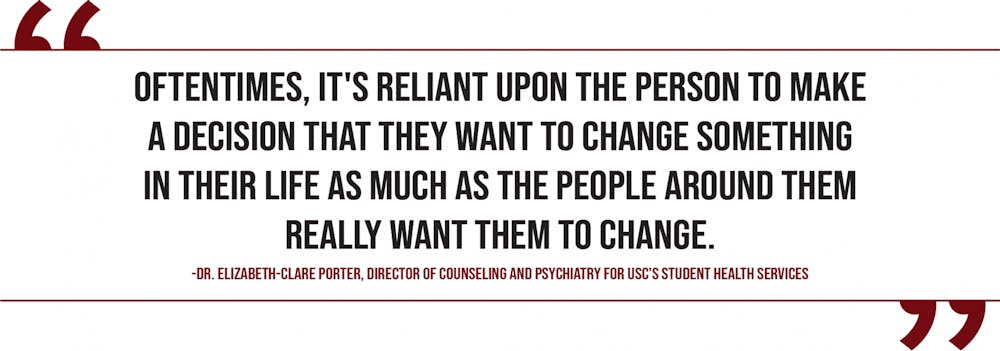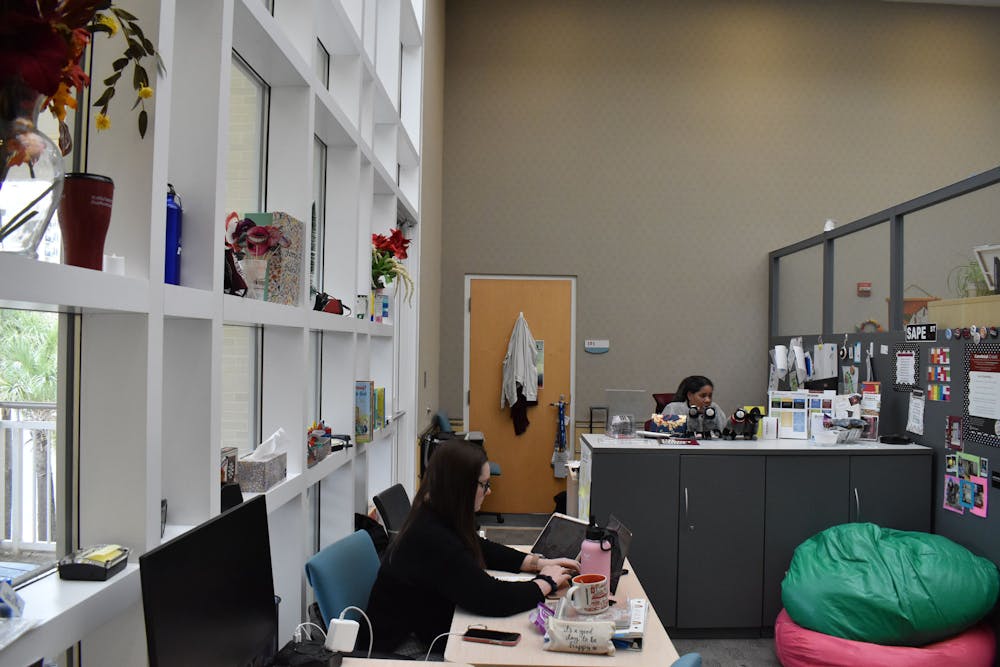Many college students struggle with substance abuse, but not all of them seek or receive help.
According to Gamecock Recovery campus surveys, about 4% to 5% of USC students report being in recovery for a substance abuse disorder, which equates to about 1,500 students.
Aimee Hourigan, the director of Substance Abuse Prevention and Education (SAPE) at USC, said many students use substances to cope with stress or trauma or to fit in with their peers who use substances. Most students who are in recovery started using substances before college and tend to use them in more high-risk ways.
SAMHSA, the Substance Abuse and Mental Health Services Administration within the U.S. Department of Health and Human Services, defines recovery as a process where individuals continue to improve their health and reach their full potential while also learning how to live "self-directed" lives. Hourigan said Gamecock Recovery also follows this definition.
“If your use is not aligning with what you want, then the reason to get help is because we can help you meet your goals,” Hourigan said. “Nobody’s going to tell you you have to stop or give it up altogether, and that’s a resource that we have. We’ve got lots of different options.”
Due to the COVID-19 pandemic, the U.S. is at the lowest point of high-school aged addiction in 20 years. Because of this, many students reaching out to Gamecock Recovery within the past two years had no substance experience until they came to the university.
Hourgian said that two of the biggest reasons first-year students begin using substances is to experiment with their new freedom and to do so without their parents’ influence.
“Every day, you get to go out and there's no consequences for anything, and it's the best four years of your life,” Hourigan said. “So they're kind of trying to live out a myth about what their college experience is supposed to be.”
About 800 students each year report through AlcoholEDU that they want to be connected to SAPE’s resources, but only a fraction of them actually get in touch.
“I think sometimes people avoid getting help because they think that somebody's going to wag their finger or tell them that you have to quit altogether,” Hourigan said.
Dr. Elizabeth-Clare Porter, the director of counseling and psychiatry for USC's Student Health Services, helps students identify substance use problems during consultation screenings and refers them to resources such as SAPE and counseling.
“Sometimes it's about continuing to provide, these are the resources that are available to you,'” Porter said.
Gamecock Recovery also assists students by allowing them to make connections with other students in recovery and people who have overcome an addiction. They meet weekly for recovery meetings and often have fun community-building events such as going out for dinner, rock climbing and game night.
Hourigan said students can help support their recovering peers by taking ally workshops provided by SAPE, where they will learn to validate their peers' recovery journey, and making sure to include them in activities that don’t involve substances. Students can also contact the Student Care and Outreach Team, which will organize a team that can help a struggling substance abuser.
Delandous Haynes, the director of public relations and marketing for USC's Student Health Services, also said that paying attention to friend's behaviors or mood swings can be the first step in helping peers who could be abusing substances, especially during times of peak stress and anxiety, such as exam week.
However, Porter said that while it is always good to check-in on friends and inform them on the resources available, the person still has to be the one to fight for recovery.
"Oftentimes, it's reliant upon the person to make a decision that they want to change something in their life as much as the people around them really want them to change," Porter said.


